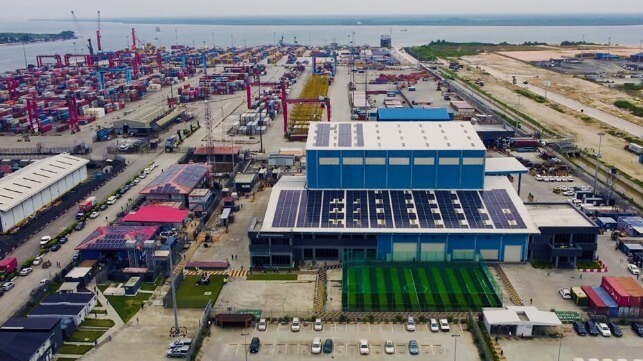APM Terminals Upgrades Container Terminal in Nigeria’s Onne Port

Following a government pledge to modernize Nigeria’s aging port infrastructure, Onne Port in Rivers State has inaugurated an upgraded container terminal. The modernized West Africa Container Terminal (WACT) is operated by the APM Terminals. It was refurbished at a cost of $115 million.
APM Terminals highlights that the upgraded WACT features an expanded yard space, which is almost double the initial capacity. There is also new cargo handling equipment including Mobile Harbor Cranes (MHC) and Rubber Tyre Gantries (RTG), intended to reduce turnaround time.
Although Onne Port is primarily known for its oil and gas operations, the container segment is steadily becoming a mainstay of the port. With excellent hinterland connections, the port is poised to serve upcoming industrial clusters in eastern and central Nigeria.
“As Africa’s largest economy and most populous nation, Nigeria stands on the brink of remarkable growth,” said Olaf Galhausen, COO of APM Terminals. “We are proud to be catalysts in this journey, transforming WACT into a world-class facility to drive trade across West Africa.”
APM Terminals operates two container terminals in Nigeria, WACT and the other one in Lagos. Combined they handle about half of the containers going in and out of Nigeria.
With growing trade in the Nigerian market, Maersk in 2020 added Onne Port to its direct service (FEW3), which connects the Far East to major West African ports. As a key regional market, Maersk is making huge investments in the Nigerian port infrastructure.
In April, Maersk pledged to invest close to $600 million in Nigeria’s port expansion. The company’s Chairman Robert Maersk Uggla agreed to the investment at a meeting with Nigeria’s President Bola Tinubu.

that matters most
Get the latest maritime news delivered to your inbox daily.
“We have seen a significant opportunity for Nigeria to cater for larger containerships. Historically, most of the West African coasts are already served by smaller ships. Currently, we see an opportunity to deploy larger ships to Nigeria. This means we need to expand the port infrastructure,” said Uggla.
